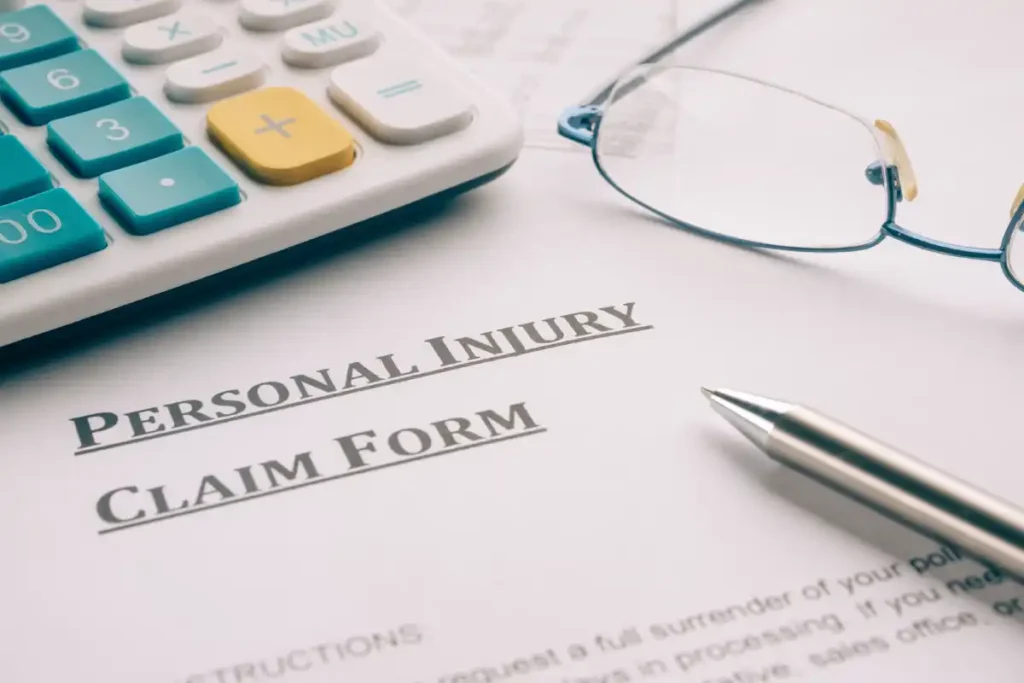7 Key Challenges In A Traumatic Brain Injury Claim

Traumatic brain injury claims are among the toughest battles in personal injury law. Unlike straightforward injuries that appear clearly on scans, brain trauma frequently involves invisible harm that emerges gradually over weeks or months. The road to adequate compensation is filled with challenges, and victims commonly run into barriers that can seriously jeopardize their case if not managed correctly.
Contents
- 1 1. Proving the Extent and Severity of the Injury
- 2 2. Establishing Clear Causation
- 3 3. Delayed Symptom Onset
- 4 4. Calculating Future Damages and Long-Term Care Needs
- 5 5. Dealing With Insurance Company Tactics
- 6 6. The Battle of Expert Testimony
- 7 7. Navigating Policy Limits and Multiple Defendants
- 8 Moving Forward With Your Claim
1. Proving the Extent and Severity of the Injury
The invisible nature of many brain injuries creates the first major hurdle. Insurance companies love to exploit this ambiguity. While a severe brain injury might be evident through CT scans or dramatic symptoms, mild to moderate traumatic brain injuries often don’t show up on standard imaging. You might be struggling with memory problems, concentration issues, or personality changes that profoundly affect your life, yet a basic MRI comes back “normal.”
This is where comprehensive medical documentation becomes critical. Neuropsychological evaluations can document cognitive deficits that imaging might miss. PET scans can reveal metabolic changes in the brain that traditional scans overlook. The challenge is that insurance companies will seize on any gap in your medical records to argue your injury isn’t as serious as you claim.
Given these complexities, it’s essential to choose an injury lawyer in San Juan Capistrano, or others in your area, who has specific experience with TBI cases and understands which medical experts and diagnostic tests will build the strongest foundation for your claim.
2. Establishing Clear Causation
Even when you can prove you have a brain injury, linking it definitively to the accident presents another challenge. Insurance companies will dig through your entire medical history looking for alternative explanations. They’ll argue pre-existing conditions, not the accident, caused your current symptoms.
This is particularly tricky with vehicle accidents where there might have been only minor visible damage. Insurers will argue that low-impact collisions can’t cause serious brain injuries, conveniently ignoring that the brain can suffer trauma even without direct head impact. Strong evidence collection of police reports, witness statements, and detailed medical records helps strengthen a critical causal link and establish your claim.
3. Delayed Symptom Onset
Many TBI victims are surprised to learn that symptoms can take time to surface. It’s entirely possible to leave an accident scene feeling mostly normal, then find yourself dealing with severe headaches, memory problems, or anxiety several weeks down the road. The trouble is, you might have already told the insurance adjuster you were “fine” in a recorded statement, and they won’t hesitate to use those words against you.
This delayed onset creates documentation gaps that weaken claims. If you didn’t seek immediate medical treatment because you felt fine initially, insurance companies will question whether the accident really caused your injury.
4. Calculating Future Damages and Long-Term Care Needs
Unlike injuries that heal predictably, brain injuries can have lifelong consequences that are difficult to quantify. How do you put a dollar figure on your future earning capacity when cognitive deficits might prevent you from returning to your career? What’s the compensation amount for needing decades of medical care, home modifications, and assistive devices?
Insurance companies will push for quick settlements before you’ve reached maximum medical improvement. They know that once you sign, you can’t come back for more money. Determining the true settlement value requires vocational experts who can assess your lost wages and loss of income potential, medical experts who can project your long-term care needs, and economists who can calculate what those medical costs will total over your lifetime.
The challenge intensifies when dealing with non-economic damages like pain and suffering. How do you quantify the loss of quality of life or the inability to enjoy hobbies? These aren’t line items on medical bills, yet they represent real losses that deserve compensation.

5. Dealing With Insurance Company Tactics
Insurance companies aren’t always on your side. Their business model depends on paying out as little as possible. With brain injury claims, they employ particularly aggressive tactics because the stakes are so high.
They’ll use surveillance photos to argue you’re not really injured. After all, if you can go grocery shopping, you must be fine, right? They’ll demand access to years of your medical records hunting for anything they can twist into evidence against your claim. They’ll make lowball settlement offers hoping you’re desperate enough to accept while medical bills pile up.
6. The Battle of Expert Testimony
Brain injury cases often become battles of competing experts. Your personal injury lawyer will need medical experts, neuropsychologists, and vocational experts to testify about your injuries and needs. Meanwhile, the insurance company will hire its own experts to contradict everything your team says.
These expert witnesses don’t come cheap, and their quality matters enormously. A well-credentialed neurologist who can clearly explain how the accident caused your injuries carries far more weight than a general practitioner. The challenge is that jurors (if your case goes to trial) must evaluate contradictory expert opinions about complex medical issues.
Even when you have an ironclad case, you might hit a frustrating ceiling: insurance policy limits. If the at-fault party only carried minimum insurance coverage, that might be nowhere near sufficient to cover your economic damages and medical expenses, let alone pain and suffering.
This creates a strategic challenge requiring creative legal thinking. Your personal injury attorney might need to identify additional liable parties or explore underinsured motorist coverage on your own policy to increase available compensation.
Moving Forward With Your Claim
Traumatic brain injury claims demand patience, persistence, and skilled legal representation. The challenges are real, but so is your right to fair compensation. Understanding these obstacles upfront helps you prepare for the journey ahead and recognize why experienced legal counsel is essential for securing the resources you need for recovery.



